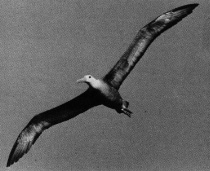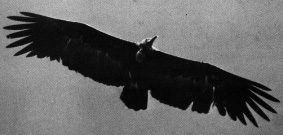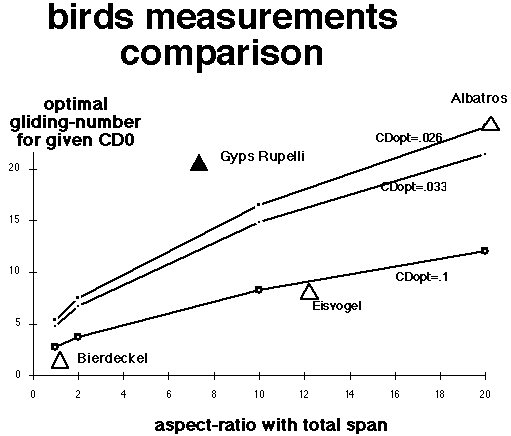 |
|||||
| Home | Research | For Teachers | HISTORY Level 1 Level 2 Level 3 |
PRINCIPLES Level 1 Level 2 Level 3 |
CAREER Level 1 Level 2 Level 3 |
| Gallery | Hot Links | What's New! | |||
| Web Administration and Tools | |||||
 |
|||||
| Home | Research | For Teachers | HISTORY Level 1 Level 2 Level 3 |
PRINCIPLES Level 1 Level 2 Level 3 |
CAREER Level 1 Level 2 Level 3 |
| Gallery | Hot Links | What's New! | |||
| Web Administration and Tools | |||||

 |
|
 |
A paradox of nature finds its explanation and application. As shown in the diagram, soaring land birds perform with the same high glide ratio as their cousins of the sea, who feature wings with very high aspect ratios. It has been proposed that soaring land birds use somehow their extended finger- feathers to attain a substantial reduction of induced drag. But how?
This paradox was the starting point to new and successful work, resulting in the WINGGRID.

Diagram: glide ratio of soaring birds.
The African vulture "gyps rupelli" has finger-feathers (aspect ratio of about 8) and a glide ratio of about 20 , which is astonishingly high compared to the albatross with a aspect ratio of 20 and a glide ratio of about 25.
What does it?
How does it do it?
Who do you I contact?
Send all comments to ![]() aeromaster@eng.fiu.edu
aeromaster@eng.fiu.edu
© 1995-98 ALLSTAR Network. All rights reserved worldwide.
Updated: 23 February, 1999